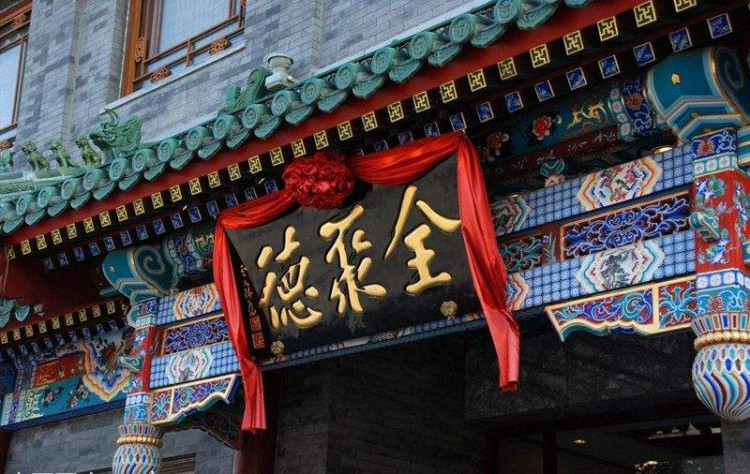China Quanjude Group Co. Ltd., operators of the Quanjude Peking roast duck restaurants, said it lost up to 53.78 million yuan ($8.01 million) in the third quarter - adding to a cumulative 202 million yuan in net loss so far this year, according to the company's latest financial report.
It announced new independent board candidates Lv Shousheng and Zhang Li. Zhang also acts as independent board director of China Auto Rental Inc.
Quanjude's stock closed trading at 10.20 yuan per share on the Shenzhen stock market Tuesday.
Roasting Ducks While Prices Fly
The company saw 516 million yuan in revenues for the past three quarters, a decline of 56.71% year on year. It blames the dampened business performance upon the coronavirus pandemic and said it had made full endeavors to resume business in the third quarter.
Some have criticized the brand - claiming it charges an "astronomical price." A Quanjude roast duck cost 8 yuan to 10 yuan 30 years ago, according to a Sohu report, quoting the restaurant's menu from that time.
During its 156th anniversary the company said it would discount a 288 yuan ($41) Quanjude roast duck to 258 yuan - still about three times more expensive than market price.
Meanwhile, the company, for the first time, abolished its 10% to 15% service fees in all its nearly 70 outlets across China. Most restaurants in China don't charge service fees. That is usually reserved to high-end hotels or cruise brands.
A Long Road To Restructuring
During the period from 2017 to 2019, Quanjude made 1.861 billion yuan, 1.777 billion yuan and 1.566 billion yuan in revenues, respectively, with decreasing net profit of 151 million yuan, 73 million yuan and 47 million yuan.
Its 2019 financial performance was the worst since its Shenzhen-listing in 2007.
Analysts said the company's operation model lags behind China's fast-changing catering trend, and its restructuring was not thorough, becoming an obstacle to the company's transformation.
After a merger in 2004 with Beijing New Yansha Group, Quanjude was controlled by the state-owned Assets Supervision and Administration Commission in Beijing and became a part of the Beijing Tourism Group which held 42.67% of its shares.
Three other brands - Fangshanfan, Fengzeyuan and Sichuan Restaurant - were also merged into the group.
According to a China Daily report in April 2016, the roast-duck restaurant chain was planning corporate restructuring, which could include a potential changing of its name to "China Beijing First Meal." However, the company later denied such intentions. Meanwhile, the company announced the resignations of four top executives, including chairperson Wang Zhiqiang and general manager Xing Ying.
From Catering To Tourists To Catering For Locals
"It's hard for a big-scale catering restaurant to go in a different direction," said Zhou Yanlong, the current general manager of Quanjude. "But, under the pandemic time, we have come to a realization that the food delivery can be a 'ladder', connecting our brand with consumers."
Zhou added that the absence of food delivery in Quanjude business operations might be one of the main reasons for the company's poor performance in the past few years.
Starting from February, the early pandemic stage in the country, Quanjude launched its food delivery service on mainstream food delivery apps ELEME and Meituan Dianping. Roast duck as well as other 50 dishes can be ordered online.
Analysts said the brand focused so much on being the "tourism business card" to Peking duck while the competition became more fierce in the catering sector. Quanjude was focused on catering gatherings and banquets, while its customer flow dissipated.
"We need to make the restaurant for Beijingers, localizing our service to the market and young consumers," Zhou told Beijing News.
Quanjude started its business in 1864 and claims fame for serving former Chinese premier Zhou Enlai and former U.S. President Richard Nixon. It has overseas branches in Sydney, Melbourne, Toronto and Tokyo.
From January to July 2020, the nation's catering industry saw 1.8 trillion yuan in revenues, a decrease of 29.6% year-on-year, according to 2020 China's Catering Industry Annual Report.





